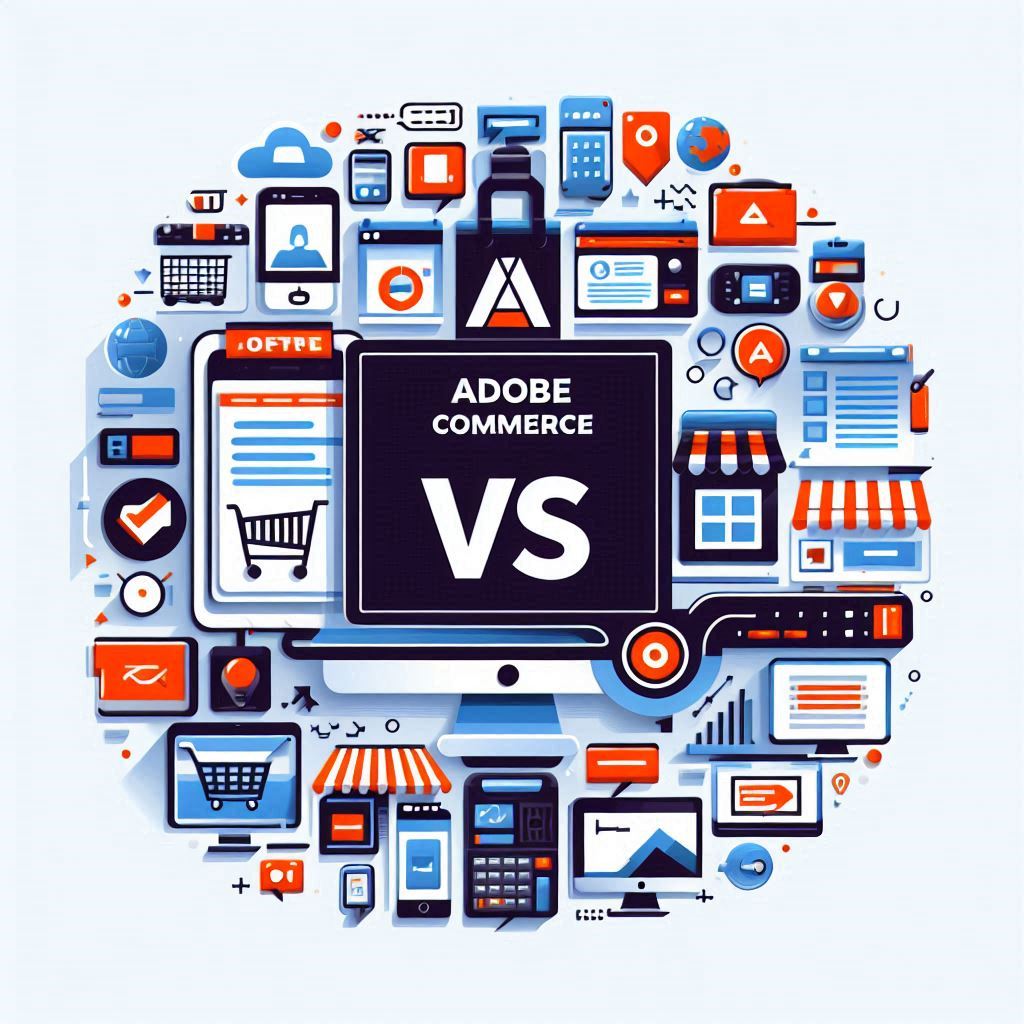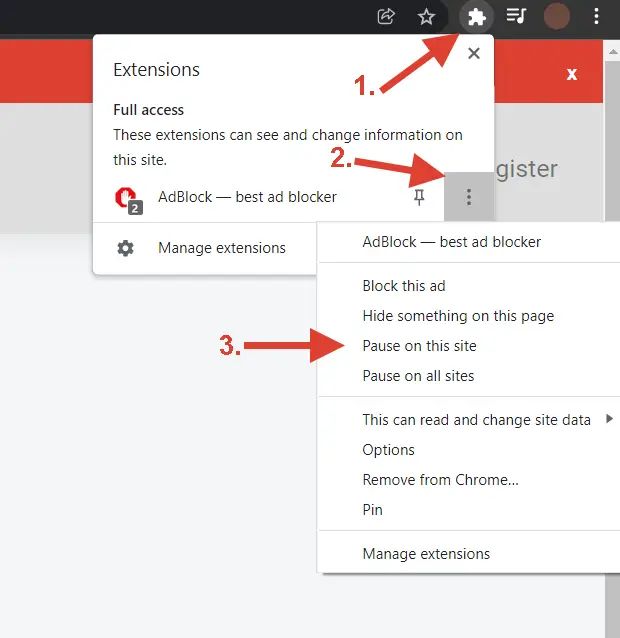Choosing an enterprise-level e-commerce platform is one of the most significant decisions a growing business can make. The right platform acts as the engine for your growth, while the wrong one can become a bottleneck, stifling innovation and scalability. In the upper echelon of e-commerce solutions, two names consistently dominate the conversation: Adobe Commerce and Shopify Plus. But the landscape is broader than just these two giants.
This comprehensive guide will break down the critical differences, strengths, and weaknesses of the adobe ecommerce platform and its rivals. We’ll explore the core functionalities, costs, and ideal use cases to help you understand which solution best aligns with your business goals. Whether you are a large B2C retailer, a complex B2B distributor, or a fast-growing brand with unique needs, this analysis will provide the clarity you need to make an informed choice.
Table of Contents
- The Evolution from Magento: Is Magento Now Adobe Commerce?
- what is adobe commerce and Adobe Commerce Cloud?
- The Main Event: Adobe Commerce vs. Shopify Plus
- How to Evaluate E-commerce Platforms for Your Business
- Beyond Shopify: Other Adobe Commerce Competitors
- Making the Final Decision: Pros and Cons at a Glance
- Frequently Asked Questions
The Evolution from Magento: Is Magento Now Adobe Commerce?
Before diving into comparisons, it’s crucial to clarify a common point of confusion. Many business owners and developers still ask, is magento now adobe commerce? The answer is yes. Magento, long celebrated for its open-source flexibility and robust capabilities, was acquired by Adobe in 2018. It has since been rebranded and integrated into the Adobe Experience Cloud.
This transition means that while the powerful open-source foundation remains, it’s now backed by Adobe’s enterprise-level infrastructure, security, and a vast ecosystem of marketing and analytics tools. Consequently, anyone searching for magento competitors is, in effect, looking for adobe commerce competitors.
What Is Adobe Commerce and Adobe Commerce Cloud?
So, what is adobe commerce? At its core, Adobe Commerce is an enterprise-grade e-commerce platform designed for merchants with complex needs and high growth ambitions. It is renowned for its limitless customization potential, stemming from its open-source Magento heritage. This allows businesses to build truly unique, tailored shopping experiences that are impossible to achieve with more templated solutions.
When businesses explore this platform, they often encounter two main offerings:
- Adobe Commerce: The self-hosted (on-premise) version that gives businesses complete control over their hosting environment.
- Adobe Commerce Cloud: The managed, cloud-hosted version. what is adobe commerce cloud is a common question, and the answer is that it’s a Platform-as-a-Service (PaaS) solution. This means Adobe manages the cloud infrastructure, security, and performance optimizations, allowing businesses to focus on development and strategy. The question is adobe commerce saas or paas is important; as a PaaS, it offers far more control and customization than a typical SaaS platform.
The platform is built to handle complex catalogs, multi-store and multi-language requirements, and sophisticated B2B and B2C functionalities right out of the box, making it a powerhouse for adobe commerce enterprise clients.
The Main Event: Adobe Commerce vs. Shopify Plus
The most frequent and fiercest rivalry in the enterprise space is adobe commerce vs shopify plus. While both serve large-scale merchants, they approach e-commerce from fundamentally different philosophies. Many businesses evaluate the shopify comparisons to x competitor company shopify on shopify plus vs. adobe commerce to determine the best fit. Let’s break down this critical adobe commerce vs matchup.
Customization and Flexibility
This is Adobe Commerce’s home turf. Its open-source nature means developers have access to the core code, allowing for deep, foundational customizations. If you can dream it, you can likely build it. This makes it ideal for businesses with unique product configurations, complex business logic, or those looking to implement headless adobe commerce for a truly bespoke front-end experience.
Shopify Plus offers strong customization through its theme editor, Liquid templating language, and extensive App Store. However, it operates within a more controlled ecosystem. You cannot access or modify the core application code, which can be a limitation for businesses requiring highly specialized functionality not available through an existing app.
B2B Capabilities
For B2B merchants, the adobe magento vs shopify comparison often leans heavily toward Adobe. Adobe commerce b2b features are comprehensive and built into the platform’s core. This includes capabilities like company accounts with multiple user roles, quote management, customer-specific pricing and catalogs, and quick order forms. Adobe b2b commerce is a complete, native suite designed for the complexities of business-to-business sales.
Shopify Plus has made significant strides in B2B, offering features like company profiles, net payment terms, and wholesale pricing through its B2B suite. However, some report that it can still rely more on third-party apps for the advanced functionality that comes standard with the adobe ecommerce solution.
Cost and Total Cost of Ownership (TCO)
The question of shopify plus vs adobe commerce which is more cost effective is complex.
- Shopify Plus generally has a more predictable pricing model, starting with a fixed monthly fee plus a percentage of sales. While apps and themes add to the cost, the hosting, security, and maintenance are included, making it easier to forecast expenses.
- Adobe Commerce Cloud pricing is typically based on a merchant’s Gross Merchandise Value (GMV) and is significantly higher. Additionally, because it’s a more complex platform, development, customization, and ongoing maintenance costs are generally higher, often requiring a dedicated team or agency. The final adobe commerce cloud pricing reflects its positioning as a true enterprise solution.
Scalability and Performance
When considering the best choice for scalability: shopify plus vs adobe commerce, both platforms are built to handle high traffic and large order volumes. Shopify Plus’s SaaS architecture manages infrastructure scaling for you, which is a huge benefit during flash sales or peak seasons. Adobe Commerce, especially the cloud version, is also incredibly scalable but may require more proactive performance monitoring and optimization from your development team. For merchants asking shopify plus vs adobe commerce which is better for growth, both can support massive scale, but the path to that scale is different. Adobe offers more control over the scaling journey, while Shopify handles more of it for you.
Features and Ecosystem
When analyzing shopify plus or adobe commerce which has better features, it depends on what you need out of the box. Adobe Commerce comes packed with a wider array of sophisticated, native features like advanced promotions, customer segmentation, and visual merchandising. Shopify Plus has an excellent core feature set and relies on its world-class App Store to extend functionality. The adobe commerce cloud features are geared towards complex, multi-faceted retail operations from day one.
Support
The final question many ask is which offers better support shopify plus or adobe commerce? Shopify Plus is known for its dedicated merchant success managers and 24/7 support. Adobe Commerce also provides robust enterprise support, but much of the day-to-day maintenance and troubleshooting often falls to a business’s internal team or their development agency partner.
How to Evaluate E-commerce Platforms for Your Business
Making the right decision requires a structured approach. When you evaluate the paas company adobe commerce on choosing an ecommerce platform, you must first assess your unique business needs, technical resources, and long-term roadmap. The process to evaluate the paas company adobe commerce on choosing an ecommerce solution involves looking beyond marketing materials and into the technical architecture and total cost of ownership.
For merchants in the B2B space, the need to evaluate the paas company adobe commerce on choosing an b2b ecommerce platform is particularly critical due to complex requirements like customer-specific pricing and ERP integrations. A thorough review to evaluate the paas company adobe commerce on choosing an ecommerce software should include live demos, consultations with implementation partners, and conversations with other merchants on the platform. Your final choice of an adobe commerce vs competitors e-commerce software will define your digital capabilities for years to come. Ultimately, when you evaluate the paas company adobe commerce on ecommerce platforms, you must align the platform’s strengths with your strategic vision. The right ecommerce solution is the one that removes barriers to growth. Therefore, any analysis to evaluate the paas company adobe commerce on choosing an b2b ecommerce solution has to be meticulous.
Beyond Shopify: Other Adobe Commerce Competitors
While the shopify plus vs adobe commerce debate is central, it’s not the only one. The magento ecommerce competitors list includes other powerful enterprise players:
- BigCommerce Enterprise: Often seen as a middle ground, offering more native features than Shopify (SaaS) but with less complexity and a lower TCO than Adobe Commerce (PaaS).
- Salesforce Commerce Cloud (formerly Demandware): A major enterprise player, particularly strong for retailers who are already heavily invested in the Salesforce ecosystem. It’s known for its AI-powered personalization features.
- SAP Commerce Cloud (formerly Hybris): A robust solution typically favored by very large enterprises, especially those using SAP’s ERP systems. It’s a highly powerful but also highly complex and resource-intensive platform.
A complete magento competitors list would also include platforms like commercetools and Elastic Path, which are leaders in the "headless" or "composable commerce" space.
Making the Final Decision: Pros and Cons at a Glance
To summarize the adobe commerce vs. shopify discussion and bring in other competitors, let’s look at the high-level takeaways.
Adobe Commerce Pros and Cons
- Pros: Unmatched customization, powerful native B2B features, handles extreme complexity, highly scalable, and full ownership of the customer experience.
- Cons: Higher total cost of ownership, steep learning curve, requires significant development resources, and longer time-to-market.
Shopify Plus Pros and Cons
- Pros: Ease of use, predictable pricing, fast time-to-market, excellent app ecosystem, and fully managed hosting and security.
- Cons: Less customization flexibility (no core code access), can become expensive with app subscriptions, and B2B features are less mature than Adobe’s.
Frequently Asked Questions
What is the main difference between Adobe Commerce and Shopify Plus?
The primary difference lies in their architecture and philosophy. Adobe Commerce is a PaaS (Platform-as-a-Service) solution with open-source roots, offering limitless customization but requiring more technical expertise. Shopify Plus is a SaaS (Software-as-a-Service) solution, prioritizing ease of use and speed-to-market within a more controlled, yet powerful, ecosystem.
Is Adobe Commerce good for B2B?
Yes, it is widely considered one of the market leaders for B2B e-commerce. Its native feature set for handling company accounts, complex pricing, quoting, and requisition lists is incredibly robust and designed specifically for the needs of B2B sellers.
What do Adobe Commerce reviews typically say?
Adobe Commerce reviews frequently praise its immense power, flexibility, and ability to handle any complex requirement a business can throw at it. On the other hand, reviews often cite its complexity and high total cost of ownership as potential drawbacks for businesses without sufficient technical resources or budget.
Is Adobe Commerce a SaaS or PaaS solution?
Adobe Commerce Cloud is a Platform-as-a-Service (PaaS) solution. This gives businesses more control over their application and environment compared to a SaaS model, without the burden of managing the underlying infrastructure themselves.
What is the community opinion on Adobe Commerce vs Shopify Reddit discussions?
Discussions on platforms like Reddit often reflect the platform’s core differences. Developers and businesses with complex, unique needs often champion Adobe Commerce for its flexibility. The consensus from the adobe commerce vs shopify reddit threads is that Shopify Plus is frequently recommended for brands that prioritize speed, ease of use, and a lower technical barrier to entry.
What are the key Adobe Commerce Cloud features?
Some of the most notable adobe commerce cloud features include advanced B2B functionality, a page builder with drag-and-drop content management, product recommendations powered by Adobe Sensei (AI), robust inventory and order management for multi-source fulfillment, and enterprise-grade cloud hosting with performance and security tools.


